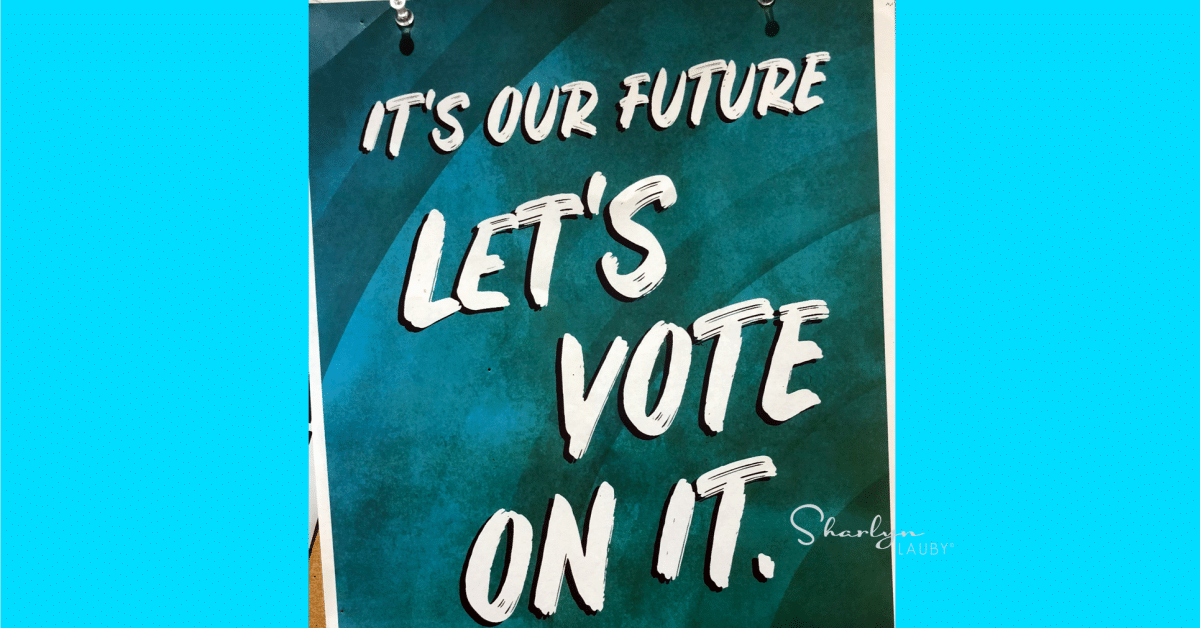Midterm Elections: Why #HR and #Business Professionals Need to Pay Attention
On Tuesday, November 6, 2018, the U.S. has their midterm elections. According to Wikipedia, midterm elections usually have lower voter turnout than the presidential election. Some years, the turnout has been around 40 percent of those who are eligible to vote.
I’ve written before about the importance of being involved in government affairs and the public policy process. What happens in government impacts us personally. What happens in government impacts our organizations, which impacts our work as human resources professionals. To help us understand how the upcoming election could impact our HR role, I spoke with two distinguished members of the Society for Human Resource Management (SHRM) government affairs team. Mike Aitken is senior vice president of government affairs and Lisa Horn is vice president of congressional affairs at SHRM, where they play a key role in advocating on policy proposals that will have an impact on work, workers, and the workplace.
Lisa, my guess is I’m not alone is saying it’s been a long time since my high school civics class. Can you give us a refresher on what a midterm election is and why they exist?
Mike, now that we know what the midterms are, let’s get straight to the point. Why are they important (versus presidential elections)?
[Aitken] Midterm elections determine which political party will govern the House, the Senate or both. Congress largely determines what the legislative agenda is going to be for that two-year term, and therefore, Congress controls the legislative issues that are going to be advanced in the legislature.
I would like to think that everyone is tuned into the news. So, people understand there are lots of reasons to vote in the midterms. What’s at stake from a HR and business perspective?
Lisa, you and I spoke earlier this year about SHRM’s Workflex initiative. And, SHRM recently introduced the “We Are Work” campaign. How do issues like paid leave, the skills gap, immigration reform, and workplace equality factor into the mid-terms?
[Horn] The issues raised in the midterms (i.e. healthcare reform, immigration, harassment, workforce development etc.) can motivate individuals to go out to the polls and vote. For example, people may be motivated to vote by one candidate’s perspective supporting a Medicare for all healthcare reform proposal, while another citizen may be motivated to vote based on a candidate’s views on immigration reform.
As a HR professional, where can I learn more about how the mid-terms can impact my work and organization?
[Horn] HR professionals that want to learn more about a candidate’s perspective on these issues should start by visiting that candidate’s website. If they have time, attend televised or local debates and educate themselves on where the candidate stands on these workplace issues. In addition, SHRM has featured articles and information in our newsletters and SHRM’s Member Advocacy website about some of the issues that are being considered in the context of the midterm elections.
Last question. For HR pros who are looking for some information on voting laws in their state, where can they go to find it?
[Aitken] As an HR professional you should be encouraging your employees to learn more about candidates, and how they are on these issues and encourage them to vote on election day. You can find out all the information you need to know about variety of state voting laws on the SHRM Policy Action Center website or by connecting with the SHRM Knowledge Center.
My thanks to Lisa and Mike for sharing their knowledge with us. It’s not easy understanding everything that happens in Washington D.C. As a SHRM member, I think it’s fantastic that not only do we have a voice on Capitol Hill but that the government affairs team takes the time to educate us, so we can play an active role in shaping what happens from an HR perspective.
If you haven’t already, mark your calendar for midterm elections: November 6, 2018. Your vote could impact your job.
Society for Human Resource Management logo used with permission
18